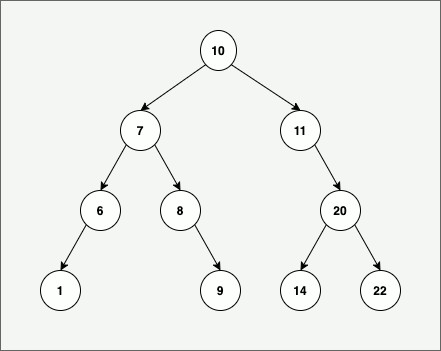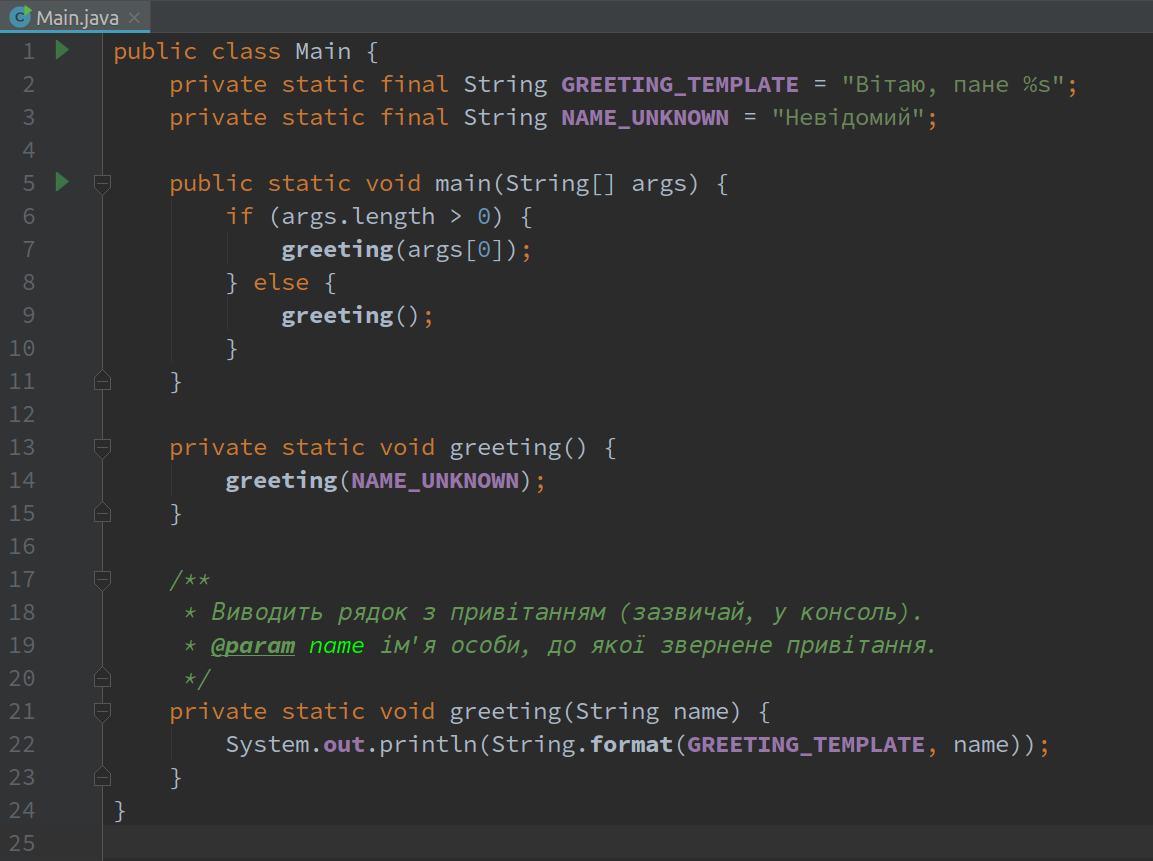6 min to read
Algorithms - Binary Search Tree in kotlin
Brief review of binary search trees with kotlin examples

“A binary search tree (BST) is a rooted binary tree whose internal nodes each store a key greater than all the keys in the node’s left subtree and less than those in its right subtree.” – Wikipedia
One of the biggest advantages of Binary Search Trees is the performance of lookup, addition and removal of data nodes, each comparison skips the half of the remaining tree, so the operation usually is O(log n)
Here is an example of Binary Search Tree:

Let’s code a binary search tree
The fist step it’s going to be the data structure. It’s pretty similar to the one we code in the previous post about binary tree traversals.
data class BinarySearchTreeNode(
var data:Int,
var left: BinarySearchTreeNode? = null,
var right: BinarySearchTreeNode? = null
){
// ...
}
As you can see is basically the same as simple binary trees, the main difference is going to be how we insert, search and delete values from the tree.
Insert values in the tree
The insertion function is a simple recursive one, there are 4 cases:
- New item is lower or equals than the current node data:
- If left exist –> insert the value in left child (recursion)
- Else, create a new left child with the value (finish condition)
- New item is greater than the current node data:
- If left exist –> insert the value in left child (recursion)
- Else, create a new right child with the value (finish condition)
fun insert(value:Int){
if(value <= data && left != null){
left!!.insert(value)
}else if (value <= data){
left = BinarySearchTreeNode(value)
}else if(value> data && right != null){
right!!.insert(value)
}else{
right = BinarySearchTreeNode(value)
}
}
Search/contains value in the tree
In the following kotlin snippet we are going to implement the contains function, because our tree stores only Integer values.
If you want to store complex objects, is not difficult to modify the function to return the data of searched value instead
a boolean, but you need to store only comparable objects with proper implementation of equals function.
fun contains(value:Int) : Boolean{
if (value < data && left !=null) {
return left!!.contains(value)
}
if(value > data && right!=null) {
return right!!.contains(value)
}
return value==data
}
Removing nodes from Binary Search Tree
Probably the most complex operation because if we need to remove a node with children we should reorder the tree. We need to consider the following 3 scenarios:
- The removed value is
lowerthan the current node:- if left child exist, we use the recursion to remove value from the left child
- else, value does not exist in tree, return false.
- Removed value is
greaterthan the current node:- if right child exist, we use the recursion to remove value from the left child
- else, value does not exist in tree, return false.
- Removed value is
equalsto the current node data:- Depending on the existing children we should remove or reorder (see code comments)
fun remove(value:Int, parent:BinarySearchTreeNode) : Boolean{
// Value lower than current node data
if (value<data && left!=null){
return left!!.remove(value,this)
}else if(value<data){
return false
// Value greater than current node data
}else if(value>data && right != null){
return right!!.remove(value,this)
}else if (value>data){
return false
// Value equals the greater node data
}else {
// No Children, current node is parents LEFT node
if (left == null && right==null && this == parent.left) {
parent.left = null
// No Children, current node is parents RIGHT node
}else if (left == null && right==null && this==parent.right){
parent.right = null
// ONLY LEFT child, current node is parents LEFT node
}else if(left!=null && right==null && this == parent.left){
parent.left = this.left
// ONLY LEFT child, current node is parents RIGHT node
}else if(left!=null && right== null && this == parent.right){
parent.right = this.left
// ONLY RIGHT child, current node is parents LEFT node
}else if (right!=null && left==null && this == parent.left) {
parent.left = this.right
// ONLY RIGHT child, current node is parents RIGHT node
}else if(right!=null && left==null && this == parent.right) {
parent.right = this.right
// BOTH Children exists, replace current data with min value from right
}else{
data = right!!.min()
right!!.remove(data,this)
}
return true
}
}
fun min() : Int = if (left==null) data else left!!.min()
You can find the complete code of this example in this GitHub repository



